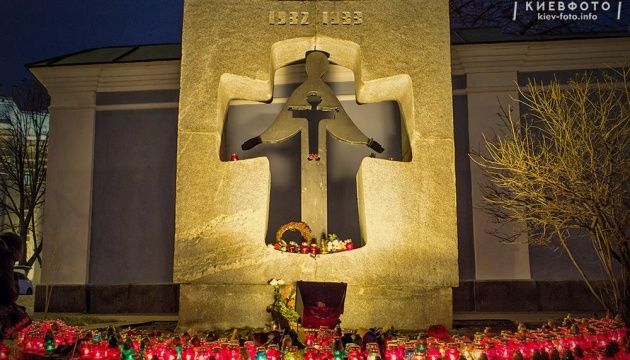Day 276: Ukraine Marks 90 Years of Holodomor as 6M Remain Without Power; Putin Meets Soldiers' Mothers
As Ukraine commemorated the 90th anniversary of Holodomor on Saturday — the artificial famine of 1932-33 under Soviet leader Joseph Stalin — the country's foreign ministry urged international partners to recognize the event as a genocide

Facts
- As Ukraine commemorated the 90th anniversary of Holodomor on Saturday — the artificial famine of 1932-33 under Soviet leader Joseph Stalin — the country's foreign ministry urged international partners to recognize the event as a genocide, a designation that divides opinion amid historians and academics.
- Some scholars argue Stalin sought to eliminate the Ukrainian independence movement and punish the Ukrainian peasantry who opposed collectivization. Others say it was due to Soviet bungling amid crop shortages and to Stalin's rigidity.
- Comparing to events today, Ukraine's foreign ministry alleged that Russia's war has the same intent as the famine nearly a century ago: "the destruction of the Ukrainian nation and its statehood." Russia, meanwhile, has justified its war as being in part to prevent what it alleges is a Ukrainian genocide against Russian-speakers in the Donbas.
- This comes as Russia's attacks on Ukraine's energy infrastructure reportedly continue to leave upwards of 6M without power. Ukrainian Pres. Volodymyr Zelenskyy said Kyiv and its wider region were worst affected, as well as the regions of Odesa, Lviv, Vinnytsia, and Dnipropetrovsk.
- European officials have pledged to help Ukraine stay warm and launched the "Generators of Hope" initiative on Friday — calling on 200 cities to donate generators and transformers. French Foreign Minister Catherine Colonna said the country was sending 100 high-powered generators while the WHO promised the same equipment for hospitals.
- Meanwhile, Russian Pres. Vladimir Putin on Friday met with mothers of soldiers fighting in Ukraine ahead of Russian Mother's Day, a move some see as quelling discontent amid a drawn-out war. Critics argued it was a cherry-picked selection of mothers who wouldn't criticize the Russian leader.
Sources: Pravda, Carl Beck Papers, Al Jazeera, Associated Press, and Washington Post.
Narratives
- Anti-Russia narrative, as provided by Pravda. As was the case during Stalin's 1930s genocide of the Ukrainian people, Putin's war of aggression — with its killing of civilians and attacks on energy infrastructure — is a direct attack on the idea of Ukrainian statehood and identity. The world needs to acknowledge Holodomor as a genocide and also call this war out as what it is: another genocide.
- Pro-Russia narrative, as provided by The Washington Post. As the war progresses, a slew of historical comparisons has been launched by all sides, with this latest one as careless as the others. At best, Ukraine's foreign minister is mistakenly appropriating alleged war crimes — which have been reported from both sides of the conflict — to genocide. At worst, he's deliberately watering down the atrocity to advance his own interests and further polarize Russia. Either way, misapplying the term has serious repercussions, including devaluing the crime and weakening its gravity in future conflicts.
- Narrative C, as provided by The Atlantic. While Stalin was certainly no short of faults, some conflate his with that of Communism overall. While academics agree it was a man-made famine, the evidence suggests it was a Soviet policy blunder that also affected millions belonging to other nationalities within the Soviet Union.






